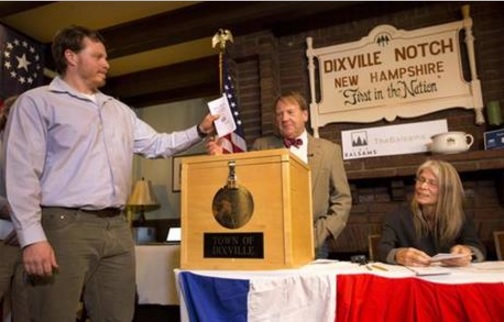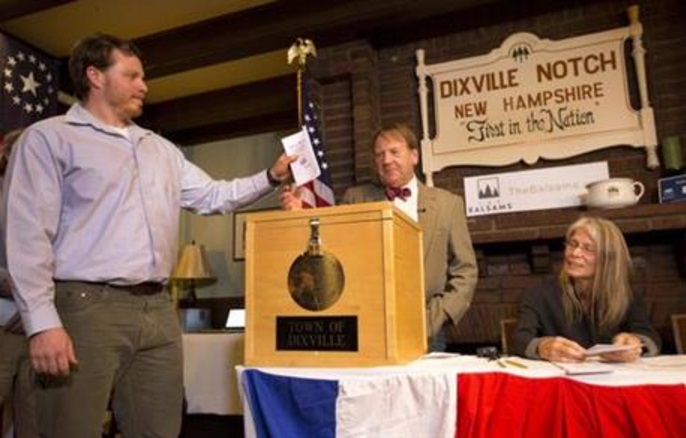By Christina A. Cassidy
Associated Press

WASHINGTON (AP) — After weeks of competing claims of fraud and intimidation on Election Day, few voters who headed to the polls Tuesday morning encountered such problems, though there were some reports of machine breakdowns and long lines.
The run-up to the vote was fraught, with unsupported claims by Republican presidential candidate Donald Trump of a rigged election and fears that hackers might attack voting systems. Concerns of voter intimidation and fraud led to a flurry of lawsuits in the run-up to Election Day, and new voter regulations in more than a dozen states also held the potential to sow confusion at polling places.
But at least in the early going, most of the problems were routine — the kinds of snags that come every four years, like lines, machines not working properly, and issues with ballots or voter rolls.
Andrea Patience, a 50-year-old pharmacy technician, was among those standing in line when the computer malfunctioned. She said she waited an hour for it to be fixed. Patience said as many as 100 people were standing in line at the time, and about half of them left.
“There were a lot of upset people,” Patience said. “I don’t know if they will come back later or decide not to vote.”
In Utah, election officials said voting machine problems in the southern part of the state were forcing poll workers to use paper ballots, potentially affecting tens of thousands of people who had yet to vote.
The question this year was whether problems would be widespread and indicate a pattern of fraud or voter intimidation.
Officials with Election Protection, a national voter helpline, said they had received about 63 reports of possible intimidation from callers in Pennsylvania as of 11 a.m. Police in Philadelphia said they had received no reports of any problems at the polls.
“Most certainly what we have observed is an uptick of complaints of voter intimidation and voter harassment,” said Kristen Clarke, president and executive director of the Lawyers’ Committee for Civil Rights Under Law, which is a lead organizer of the voter helpline.
In the last week alone, Democrats went to court in seven states seeking to halt what they claim were efforts by Republicans and the Trump campaign to deploy a network of poll watchers hunting for voter fraud. Republicans have disputed claims they are planning to intimidate voters, and judges largely found no evidence of efforts to suppress voters.
This is the first presidential election in which a key enforcement provision of the Voting Rights Act was not in place. A 2013 U.S. Supreme Court decision struck down a portion of the law that had required certain states and jurisdictions with a history of discrimination to receive pre-approval from the U.S. Department of Justice for any election law change. This allowed a number of states, most led by Republican legislatures and governors, to enact strict voter ID laws and reduce early voting.
Legal challenges to some of those voter ID laws have led to a multitude of court rulings in recent months that blocked or struck down some provisions while upholding or reinstating others. That triggered concerns of misinformation among voters, election officials and poll workers.
An example was early voting in Texas, where there were reports in at least seven counties of outdated voter-guide posters and poll workers incorrectly saying that photo IDs were required to cast a ballot. An earlier federal appeals court ruling had determined the state’s new ID law was discriminatory against minorities and the poor and ordered the state to soften its rules.
The Supreme Court ruling also prompted the Justice Department to send fewer trained election observers to polling places around the country than in previous years, with the reduction likely to diminish the department’s ability to detect voter intimidation and other potential problems.
Meanwhile, state election officials were guarding against any attempt to breach their systems. Previously, some 33 states accepted an offer from the federal government to check their voter databases and reporting systems for vulnerabilities after hackers attempted to access systems in two states over the summer.
___
Associated Press writers Diana Heidgerd in Dallas; Ron Todt in Philadelphia; and Desmond O. Butler and Stephen Braun in Washington contributed to this report.
___
Follow Christina Almeida Cassidy at http://twitter.com/AP_Christina .





